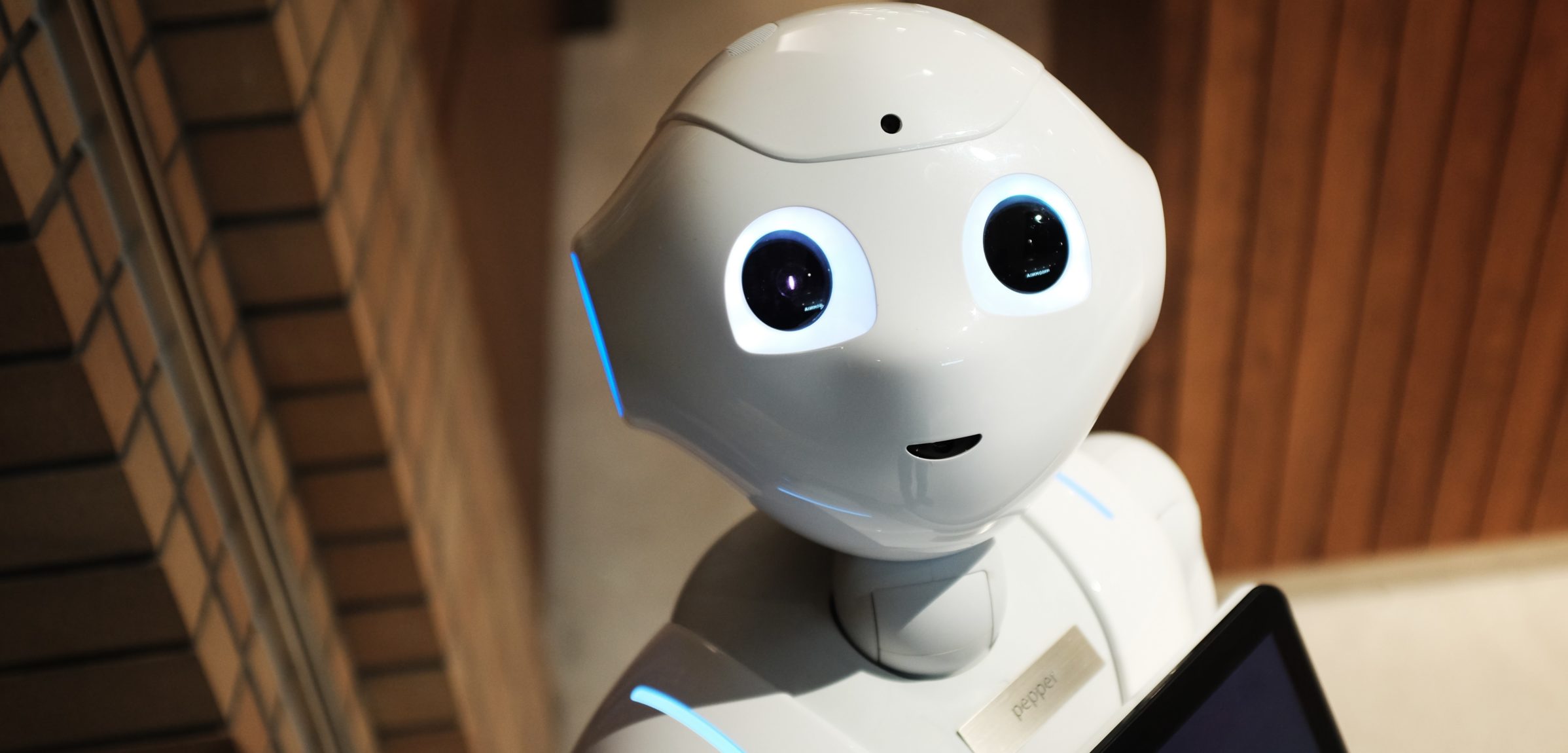We debate now whether or not we ought to baptize a repentant four year-old. But will your grandchildren be debating whether or not we should baptize a robot with artificial intelligence? That’s one of the questions posed by ecologist Bill McKibben in a book on new horizons in bioethics.
It is hard to imagine someone with whom I would have less in common than Bill McKibben. He is something of a 1960s hippie, a population-control advocating environmentalist who authored a book entitled Maybe One: The Case for Smaller Families. I disagree with him on many things, and expected to disagree with his 2003 book Enough: Staying Human in an Engineered Age, which I read recently. Instead of disagreeing all that much, I found myself saying “Amen” an awful lot.
In this book, McKibben seeks to lay out the case against what he sees as the “frontiers” of genetic engineering, robotics, and nanotechnology, arguing instead for an almost biblical vision of human nature. Along the way, McKibben points out some aspects of contemporary techno-utopian culture Christians would do well to notice.
The book prophetically speaks against the horrors of a technologically “managed” humanity, but it speaks most relevantly to little noticed intrusions of the Brave New World, intrusions that tell us what kind of world we are seeking to engage with the Gospel.
McKibben points out, for instance, the culture-transforming nature of television. He does so in a way that avoids the semi-Pharisaism of some conservative Christians and some liberal intellectuals, both of whom enjoy remarking on how little TV they watch. McKibben notes that the effects of television are societal, not just individual or even familial. As he puts it, “You may keep the TV in the closet, but you still live in a TV society.” He sees the isolation of individuals in front of televisions as part of a whole that includes the divorce culture. It is, he writes, trading context for individual freedom. The icon of this movement is, for McKibben, the 1990s television series Seinfeld, which was “devoted to exploring what it means to live a life that has no context.”
For McKibben, the loss of human community through our “progress” to individual decontextualization has left us with a radical loneliness and an even more acute fear of death. To answer these terrors, we look to even more technology, and even more freedom. McKibben writes:
“A reasonable definition of a human being is any creature unhinged at the prospect of dying. ‘This is what is creaturely about man, this is the repression on which the culture is built,’ insists Ernest Becker. That culture covers everything from the pyramids of Egypt to the ‘Left Behind’ novels now crowding the top of the best-seller charts. Death’s overpowering reality drives some to embrace various creeds, or to mummify bodies, or to jog. Some of us try to achieve glory so our names will be ‘kept alive’; others to reduce ourselves until we merge with some ultimate reality. For every person eating and drinking and making merry in the face of death, another is abstaining, hovering around the vitamin aisle at the health food store. Death is us.”
This is actually a quite perceptive description of the contemporary experience of a humanity held captive to the Evil One “through fear of death” (Heb 2:14-15).
McKibben also recognizes that the motives behind “post-human” technologies are often simply the second, third, or three-hundredth step behind a sexual revolution that sought to deny the createdness of gender. He cites those who celebrate the fact that a cyborg would “transcend” the old “patriarchal dualisms” of the past. Free from manhood or womanhood, such a being would be “liberated” for “perversity.” McKibben might not recognize Romans 1 on a printed page, but he recognizes a flight from one’s Creator when he sees it.
He also seems to recognize who his allies are, at least on this: those who worship. Worship for McKibben seems to point to the central truth of human existence: “Man does not live by bread alone but by every word that proceedeth out of the mouth of God.”
McKibben asks: “Whom would you worship as your creator if your genes came from Pfizer? If your daily bread came from a magic nanobox? If you had been programmed? Eventually, like all other meanings, religion would wither away. That’s a lot of human legacy to dispense with, but we might well do it. According to the technoutopians, we will do it. We have no choice; we inevitably push forward. It is our destiny, and destiny is inescapable. We aren’t special.”
I don’t agree with McKibben on everything, of course. He doesn’t distinguish very often between appropriate technologies and utopian ones. Still, the book is sensible, beautiful, and apocalyptic in the biblical rather than the pop-ecology sense of the term. He sets forth a chilling portrait of some new challenges the church may face. How will we minister to human clones? How will we preach the Gospel to those who are promised a cure for death itself? By the way, I’m opposed to baptizing robots.
What the book doesn’t provide is a vision of ultimate hope. His ending paragraph is a moving description of a night-time jog past the homes of his neighbors, in which McKibben reflects on the fact that the world, despite its cruelties and sufferings, is not perfect or fair but is enough.
And yet clearly it is not.
McKibben points out the horrors of loneliness and fear of death, exacerbated, yes, by our contemporary situation but hardly unique to this era. What McKibben seems to need, what all of us need, is precisely what the utopians tell us we need: a utopia. What we need is a harmonious universe, ruled by a righteous humanity beneath a glorious and personal God. McKibben doesn’t quite see this, but he seems to be groping in the darkness in the direction of it. Enough is not the contemporary equivalent of the Psalms or the Proverbs. There are few answers here. It is more like a contemporary restatement of Ecclesiastes, pointing out the vanity of a self-made existence.
Enough is not enough. But it’s a good start.







